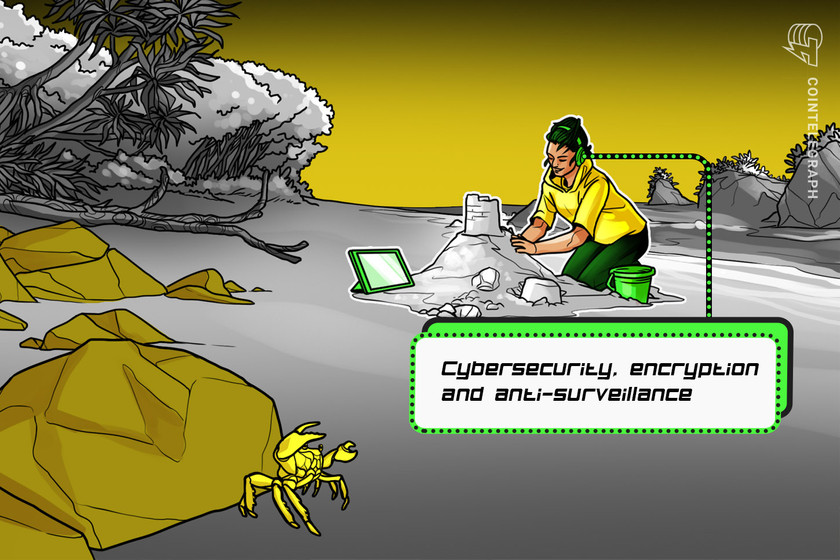Who watches the watchers? CryptoHarlem founder Matt Mitchell explains why surveillance is the enemy


CryptoHarlem founder Matt Mitchell says government and corporate surveillance and citizens’ inability to protect against it are great threats to personal security.
Technology can be one’s best friend or, in some cases, their worst enemy. For example, Meta and TikTok seamlessly connect millions of people with loved ones and strangers, and while the platforms are a great resource for finding information and communicating with others, there are valid concerns about violations of users’ privacy and the monetization and possible outright theft of users’ data.
The same can be said for surveillance and security. There is often a gift-and-a-curse style relationship, wherein the exact surveillance tools meant to keep people safe and deter crime are often used to oppress and control citizens or even ignore the criminal acts of those in power.
To explore this contentious topic in greater depth, show hosts Jonathan DeYoung and Ray Salmond invited renowned hacker and activist Matt Mitchell to the most recent episode of The Agenda podcast.


Who is watching the watchers?
When asked to share some examples of what drives his passion for hacktivism and which threats might be the most immediate for the average person, Mitchell said:
“You exist as a target of surveillance no matter what you do, right? And it might be commercial surveillance, the cookies on your browser, it might be the tracking on your phone. And normally, the incentive is financial gain, right? So, people want to sell your data to an advertiser to learn more about you so they can monetize it. Even the most failed startup is like sell this data, get out of this problem.”
To emphasize the increased danger of the surveillance threat to communities of color in the United States, Mitchell explained:
“Now, if you are a Black person or you’re in a historically Black community or a majority Black community, that surveillance includes law enforcement surveillance. It also includes private surveillance. That’s commercial surveillance. It might include the housing project you live in or the development community surveillance. And when you put it all together, there’s a 4D, like 4K, super-high-res image of your life because you’re under so many layers of surveillance that there’s almost no space that’s actually your private space.”
Mitchell said the very first thing he teaches people is that “surveillance is bad, and we need to stop it.”
When Salmond suggested that security is ultimately designed to keep citizens safe, Mitchell countered with:
“For example, let’s say you work as a tech, you have privileged access. So, only you and three other cybersecurity people or data people have access to all the sensitive keys. In the beginning, it’s used to stop abuse on the platform, but at the end, you’re using it to stalk someone you’re romantically interested, right? Because surveillance corrupts you in an insidious way, kind of like the One Ring.”
Related: Africa: The next hub for Bitcoin, crypto adoption and venture capital?
According to Mitchell:
“The group that wields the surveillance tool is not wielding it upon itself. They’re not the ones that are being watched. It is the watcher, not the watchers, that is on the empowerment side of this thing.”
To hear more from Mitchell’s conversation with The Agenda — including his backstory and the revolutionary objectives of CryptoHarlem — listen to the full episode on Cointelegraph’s Podcasts page, Apple Podcasts or Spotify. And don’t forget to check out Cointelegraph’s full lineup of other shows!
The views, thoughts and opinions expressed here are the authors’ alone and do not necessarily reflect or represent the views and opinions of Cointelegraph.










